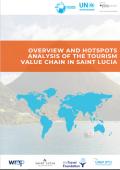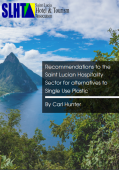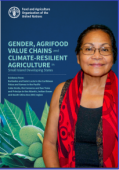
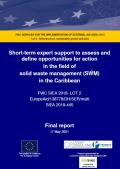
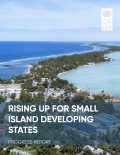
Small Island Developing States (SIDS) are generally small in population and land area, with fragile ecologies, and face diverse and distinct development trajectories. Many SIDS face common structural and fiscal development challenges including lack of economic diversification, inadequate social protections and inclusion, heavy debt and overdependency on imported fossil fuels. Further, their small size and geographies make SIDS extremely vulnerable to the impacts of climate change.
UNDP’s integrated SIDS offer Rising Up for SIDS articulates a clear strategy to respond to their most pressing needs as well as bring forth innovative solutions to the complex developmental challenges they face for a better future for people and planet. It acts as a vehicle for recovery committing to enhancing current support in areas of climate action, blue economy and digital transformation, with innovative development finance as an enabling cross-cutting area
